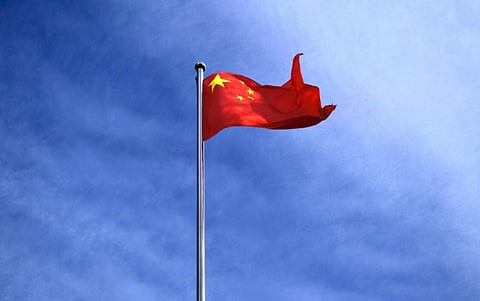
- Home
- न्यूजग्राम
- NewsGram USA
- India
- World
- Politics
- Entertainment
- Culture
- Lifestyle
- Economy
- Sports
- Sp. Coverage
- Misc.
- NewsGram Exclusive
- Jobs / Internships

As the tensions rise between India and China along the borders in Ladakh, Shekhar Gupta in his article for The Print invokes an American political satirist P.J. O'Rourke.
Talking about his works Shekhar points out that in his 'A Brief History of Man', P.J. O'Rourke writes a small sentence "Meanwhile, in China, there were the Chinese.". This sentence is relevant to us today.
Shekhar Gupta believes that the sentence conveys us a sense of resignation about the "inscrutable" Chinese. This thought happens to be familiar thought in the West.
"But we don't live in the West. We've lived next door to China for as long as first civilisations grew.", writes Shekhar Gupta
Let's look at the history of Indian interactions with China since independance. What is inscrutable about it? Talking about the military assault across two fronts in 1962, it may have been a surprise to our leaders back then, but that is only because they were delusional.
Chinese actions in respect to India are predictable now. Pixabay
From Chinese ultimatum to India to "return their stolen yaks and sheep" in 1965, to their appearance along the Ladakh frontier this year, China happens to be completely predictable and far from inscrutable. Especially keeping in mind Chinese actions in respect to India.
The push at Nathu La (Sikkim) in 1967 was probably to check out the resolve from India. Which they saw at its weakest — having fought two recent wars (1962 and 1965), famines, ship-to-mouth existence, political instability and a diminished Indira Gandhi. . The Indian response was a lesson they quickly learnt. What did the Chinese do after that? They have kept the peace for 53 years. Will you call that response evidence of Chinese inscrutability? They probed us, got a rude push-back, and decided to wait and stir the pot in different ways, at different times, says Shekhar Gupta in his artcile for The Print.
The Chinese kept the hold of what they wanted in 1962. According to Shekhar the truth is, they had it in their possession almost fully, barring small, tactically important slivers in Ladakh. They asserted their ownership and let their larger claim, Arunachal Pradesh, fully in Indian control, go militarily uncontested.
The Chinese never gave up claim on it. In 1986-87, they again checked us out at Wangdung-Sumdorong Chu (Arunachal), when they saw Rajiv Gandhi take India's defence budget to a 4 per cent-plus of GDP. And once more, the response was firm and the Chinese backed off. The lesson we learnt according to Shekhar Gupta is that the Chinese won't open fire randomly for the sake of it, Or when they are absolutely sure of an easy victory so they could be seen like 'teaching an upstart a lesson' as they did in 1962. Predictable.
Each and every action and response of China fits a pattern- Deliver a message, add leverage, and return, according to Shekhar Gupta.
India, China and Pakistan shared this unusual 'triangulation' in which China was using Pakistan to keep India preoccupied, said Former Indian Prime Minister Dr. Manmohan Singh during his tenure.
His idea was to break this 'triangulation' by seeking peace with Pakistan. He thought, that a country as big and powerful as China, would see less of an incentive for peace with India than Pakistan.
Former Indian Prime Minister Dr. Manmohan Singh's idea was to break this 'triangulation' by seeking peace with Pakistan. Wikimedia Commons
Shekhar Gupta believes that today, that option is not so available, as hostility with Pakistan is central to the Modi-BJP politics. They'd rather make peace with China than Pakistan. That is why the lavish welcomes and frequent meetings with the Chinese leaders. The objective, still, is escaping that triangle.
Another instance of Vajpayee explaining the Chinese negotiating style. "Dekhiye, aap aur hum baithe hain aur vaarta kar rahe hain (see, you and I are sitting and negotiating)," he said. If two people require something and the first person asks to let go of something, the other will say no. Then the first person again asks for something little less, then again the other person might say no. But ultimately the second person will relent and let go of some. The Chinese would never do that.
Both these leaders underlined that the Chinese are consistent, and predictable. And that is why we should not be shoched or surprised by what they have unveiled across Ladakh. We should have anticipated it on 5 August last year when we made the big changes in Jammu & Kashmir. This Chinese move, like all others in 60 years, was fully predictable. Even the timing, says Shekhar Gupta in his article for The Print.
